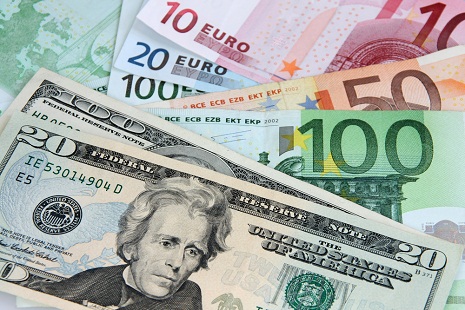Spanish Prime Minister Mariano Rajoy now faces the country’s biggest constitutional crisis in decades, with newspaper editorials saying the banned ballot - in which Catalan officials said 90 percent of voters had chosen to leave Spain - had set the stage for a decisive clash between Madrid and the region.
Many analysts, though, said the impact on the euro would be limited, as at this point most investors were not worried that the vote would have a significantly negative impact on the broader euro zone.
The euro fell 0.6 percent to $1.1741, close to its lowest levels since mid-August.
“The reaction on the euro is very limited because this is not seen as a general euro zone problem – it’s a hiccup,” said Commerzbank currency strategist Antje Praefcke, in Frankfurt.
Against the Swiss franc, often bought at times of uncertainty, the euro dipped to its weakest in three weeks at 1.1407 francs per euro.
Higher U.S Treasury yields helped bolster the greenback.
The 10-year U.S. Treasuries yield rose to 2.371 percent in early trade in London, its highest since mid-July, while the dollar index that tracks it against a basket of six major currencies added 0.6 percent to 93.588.
Data on Friday showed speculators’ net short bets on the dollar rose to their largest since late September 2012.
But the dollar last week recorded its strongest weekly performance of 2017, lifted by a revival of the “Trumpflation trade” on expectations that U.S. President Donald Trump would deliver a stalled tax reform plan, and on the view that the U.S. Federal Reserve would hike interest rates again before the end of the year.
Against the yen, the dollar rose 0.3 percent to 112.84.
Data released earlier on Monday showed Japan’s big manufacturers were the most confident about the business outlook in a decade in the last quarter, in a sign the country’s economic recovery may be gathering steam thanks to robust global demand.
The figures could also help premier Shinzo Abe as he tries to convince voters in an Oct. 22 election that his “Abenomics” stimulus policies have improved their livelihoods, analysts say.
There are two main directional scenarios for the yen following the election, said Masafumi Yamamoto, chief forex strategist at Mizuho Securities.
“If the results are perceived as a bad outcome for Abe’s party, then some investors might view it as the beginning of the end of his ‘Abenomics,’ meaning the end of the yen-weakening trend,” he said.
“But there is another possibility as well, with both parties calling for stimulus steps, which some people think might lead to ‘helicopter money,’ so then they might sell yen,” he said. “Overall, though, dollar/yen is still dominated by U.S. factors.”
More about: #Catalonia #euro
















































